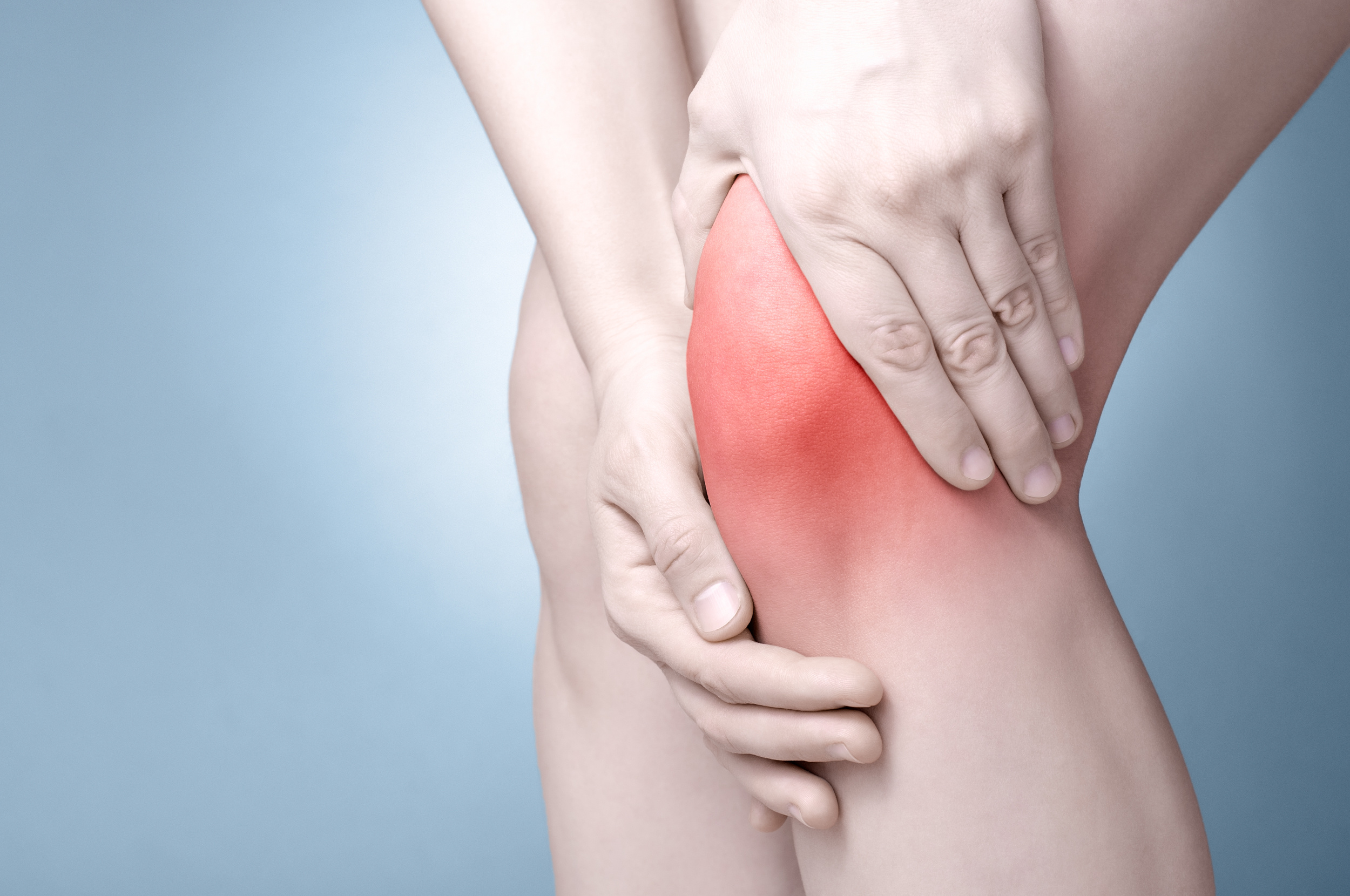A How-To Guide for Treating Knee Pain
January 06, 2021
How to Know if Knee Joint Pain is Serious
The first question in your mind when you experience knee pain is, “Ouch! What’s wrong with my knee?” And if the pain is sudden or severe, you want to know, “Is it serious?” We often take our knees for granted, until they remind us how much we need them. Knee pain is a common condition that’s often relieved with minimal intervention. But left untreated, it can become severe and greatly impact your mobility. In addition, some types of knee pain require immediate care. Look for signs like:
-
- Fever
- Immobility
- Inability to bear weight
- Significant bruising
- Redness and pronounced swelling

- A visible deformity in your knee
- Inability to bend or straighten the leg
- Severe pain following an accident or injury
How to Know When to See a Joint Pain Doctor Near Me
If you’re experiencing any of the warning signs above, seek urgent medical care. Knee injuries like fractures and dislocation require emergency treatment. Fever could indicate an infection of the bursae, Rheumatoid Arthritis, Septic Arthritis, or cancer. And even if your knee pain is mild, if you ignore degenerative conditions like Osteoarthritis, they create more wear and tear on your knees. So, if your mild or moderate pain doesn’t respond to home remedies, or improve within two weeks, visit Pain Treatment Specialists for a consultation.

How to Know What’s Causing Acute Knee Pain
Acute (sudden) pain is sometimes easier to diagnose than chronic pain, if it occurs following an incident. For example, if you twist your knee in a soccer game, or bang it against the dashboard in a car accident, you can assume the knee injury triggered it. However, what’s going on beneath the surface is another story, one which requires an expert diagnosis. A sports injury or accident can cause anything from a torn ligament, to a fractured patella, to internal bleeding. It’s essential to seek a proper diagnosis before taking meds for joint pain or resuming your normal activities.
How to Know What’s Causing Acute Knee Pain
Acute (sudden) pain is sometimes easier to diagnose than chronic pain, if it occurs following an incident. For example, if you twist your knee in a soccer game, or bang it against the dashboard in a car accident, you can assume the knee injury triggered it. However, what’s going on beneath the surface is another story, one which requires an expert diagnosis. A sports injury or accident can cause anything from a torn ligament, to a fractured patella, to internal bleeding. It’s essential to seek a proper diagnosis before taking meds for joint pain or resuming your normal activities.
How to Know What’s Causing Chronic Knee Pain
Chronic knee pain is even trickier to diagnose, since the knee is a complex hinge joint. Composed of several interwoven parts like cartilage, tendons, bones, and nerves, any of these parts could trigger pain. In addition, knee pain is often referred from other parts of the body. If you have a foot or back injury that affects your posture or stride, it can cause knee pain. And some diseases impact the knees, despite originating elsewhere. Things like Parkinson’s Disease, Rheumatoid Arthritis, and Fibromyalgia originate in the neurological or immunological systems, but often affect the knee. Treatment varies widely depending on the cause. So, visit our board-certified pain medicine experts for an accurate diagnosis and treatment plan.
How to Know if I Need Knee Replacement
If you’re anxious about having knee replacement surgery, you have some valid concerns. Knee replacement is painful, costly, and requires rehabilitation and reparative surgery over time. The good news is, fewer patients than ever require knee replacement with the newer techniques available. It’s now a last resort for advanced arthritic damage or severe injuries. Our interventional doctors can often prevent surgery, and even relieve the pain caused by prior knee surgery with advanced diagnostic imagery and tools. Talk to our award-winning team before you agree to knee replacement. There’s likely a gentler, faster, and safer way to achieve relief. Our doctors are world-renowned for non-surgical solutions to knee pain.
How to Manage Arthritis Pain in Knees
In addition to wondering what’s causing pain, patients want to know how to relieve it. Considering that 23% of adults have arthritis, our doctors are often asked questions like, “Can I use Lidocaine on my foot for Gout pain,” “How can I treat arthritis in my knee,” and, “How do I relieve Rheumatoid knee pain?” Arthritis has over 100 subtypes. So, the first step is determining which type you have. Some types are autoimmune and inflammatory in nature, yet others are degenerative. While several types affect the knees, they don’t manifest the same way, nor are they treated the same way. For example, Gout is more common in the big toe than the knee; Osteoarthritis wears away knee cartilage; and Rheumatoid Arthritis affects multiple joints and organs. So, before you search for a “gout pain specialist near me,” or “arthritic leg joint pain treatment,” see our doctors to classify your arthritis.
How to Reduce Joint Pain in Legs
Reducing joint pain in legs and knees depends largely on the causation. Knee pain caused by Osteoarthritis responds well to weight loss, doctor-approved exercise, and lubricant injections. Rheumatoid Arthritis benefits from anti-inflammatories, immune response modifiers, and Corticosteroid injections. If your joint pain results from Bursitis, our doctors can remove fluid and inject antibiotics to prevent infection. Some joint pain requires you to stay off your feet, while other types respond to stretching and activity. Talk to your doctor about the best way to reduce your specific type of joint pain.
How to Treat a Swollen Knee
If your knee is significantly swollen, such that you can’t fully bend or extend your leg, or if it’s accompanied by redness or fever, see a doctor right away. If the swelling continues to increase rather than improve, it’s also time to head to the doctor. But for mild swelling and mild pain, it’s safe to try over-the-counter anti-inflammatory medicine like Ibuprofen, if you are approved to use it. Some patients are either allergic to NSAIDs or have conditions like bleeding ulcers or intestinal disorders that prohibit usage. Most patients with mild swelling caused by things like bumping your knee or Osteoarthritis can use ice packs to reduce swelling. Be sure to check with your doctor about proper intervals so you don’t damage your skin or hinder your circulation.
How to Choose the Right Joint Pain Relief Medicine
Just like some patients can’t take NSAIDs, not every medicine is right for everyone. One particularly dangerous choice is narcotic knee joint pain relief pills. Narcotics, or opioids, are highly addictive and often require frequent titration for relief. As a result, patients become dependent on higher and higher doses and have a hard time breaking free. Narcotics also increase the risk of serious side effects like profound drowsiness, nausea, confusion, constipation, dizziness, sedation, and respiratory depression.
The best pain reliever for joint pain depends on your unique medical history and sensitivities. For some patients, that will be an analgesic, like Tylenol, while for others, an NSAID like Advil might work best. But the ultimate goal is to reduce the use of systemic, oral medication for sore joints, and eliminate pain at the source with targeted treatments like Corticosteroid Injections, Genicular Nerve Blocks, and Radiofrequency Ablation. Pain Treatment Specialists uses these minimally invasive modalities to relieve pain instantly, rather than signing you up for a lifelong dependence on inadequate pain medication.
How to Choose a Knee Pain Doctor
Adequate relief of knee pain starts with choosing the right doctor. Surgeons might recommend unnecessary surgery, aggravating your pain. Acupuncturists and massage therapists might complicate the problem by manipulating inflamed tissue. Primary care doctors lack the latest tools to diagnose and treat pain, increasing the likelihood you’ll be prescribed narcotics. Instead, choose an interventional pain medicine doctor like the world-renowned, board-certified doctors at Pain Treatment Specialists. We offer cutting-edge solutions for comprehensive relief, saving you time and money.
Book a Consultation
Scheduling a consultation with one of our pain treatment specialists is one of the best ways to determine the proper solution for pain relief.














